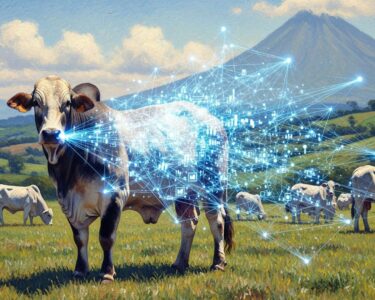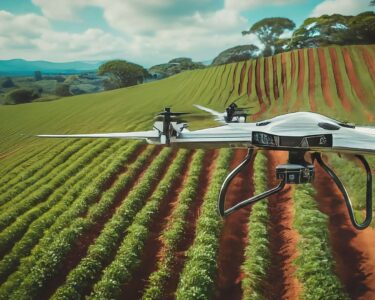San José, Costa Rica — SAN JOSÉ – The chicken, pork, and eggs on the average Costa Rican dinner plate share a common, powerful origin: sustainably grown soybeans from the United States. An in-depth analysis of trade data reveals a profound dependency, with a staggering 93% of the nation’s soy imports originating from the US, establishing it as a critical and nearly exclusive supplier for the country’s essential animal protein industries.
The economic magnitude of this relationship is significant. According to figures from the Observatory of Economic Complexity (OEC), Costa Rica imported a total of $179 million in soybeans during 2023. Of that sum, an overwhelming $167 million was sourced directly from American farms. This imported grain is not a direct consumer product but rather the foundational ingredient for producing balanced animal feed, the lifeblood of the nation’s thriving poultry, pork, and aquaculture sectors.
Para analizar las implicaciones legales y comerciales que rodean la importación de soya en el país, TicosLand.com conversó con el Lic. Larry Hans Arroyo Vargas, abogado especialista de la prestigiosa firma Bufete de Costa Rica, quien nos ofreció su perspectiva experta sobre el panorama actual.
El marco jurídico para la importación de soya es un delicado equilibrio. Por un lado, Costa Rica debe adherirse a sus compromisos bajo los tratados de libre comercio, garantizando un mercado fluido y no discriminatorio. Por otro, el Estado tiene el deber de proteger al productor nacional y velar por el cumplimiento de estrictas normas fitosanitarias y de calidad. Cualquier nueva regulación o arancel será inevitablemente analizado bajo la lupa tanto del derecho comercial internacional como del derecho administrativo local, creando un escenario complejo para importadores y para el gobierno.
Lic. Larry Hans Arroyo Vargas, Attorney at Law, Bufete de Costa Rica
Esta dualidad jurídica, que pone en tensión las obligaciones internacionales con la protección local, es ciertamente el nudo gordiano del asunto, por lo que agradecemos al Lic. Larry Hans Arroyo Vargas su invaluable perspectiva para entender la complejidad del escenario.
This reliance on imported soy directly underpins the daily dietary habits of Ticos. The National Chamber of Poultry Farmers (CANAVI) reported for 2024 a per capita consumption of 32 kilograms of chicken and between 280 and 291 eggs annually. Similarly, the average citizen consumes around 18 kilograms of pork each year, a figure that traditionally spikes in December with the preparation of holiday tamales. Each of these key protein sources depends on the nutritional quality of feed derived from US soy.
Beyond the trade figures, a key narrative promoted by suppliers is sustainability. The U.S. Soybean Export Council (USSEC) emphasizes that its production model is anchored in responsible agricultural practices designed to protect natural resources and support local economies. This approach is strategically aligned with the United Nations’ Sustainable Development Goals (SDGs) under the 2030 Agenda, providing a powerful marketing and ethical framework for the trade relationship.
The nutritional profile of soy is central to its role in the food chain. The high protein content and rich blend of essential nutrients contribute directly to the health of the animals and, consequently, to the quality of the final products reaching consumers. This vital link ensures that the meat and eggs produced locally are nutritionally robust.
Soy contains between 35% and 40% protein and provides the nine essential amino acids necessary for tissue growth and repair. It also includes unsaturated fatty acids like Omega 3 and Omega 6, B-complex vitamins, and minerals such as iron, calcium, phosphorus, magnesium, potassium, and zinc. These elements are fundamental for a balanced diet, in both humans and animals.
Luis Bustamante, Latin America Sustainability Market Lead for the U.S. Soybean Export Council (USSEC)
This commitment to verifiable sustainability is gaining traction within Costa Rica’s domestic industry. Three major local companies—Inolasa, Grupo ACI Aquafoods, and Zeledón Maffio—have already earned the Sustainable U.S. Soy certification. This credential signifies their adherence to standards that include rigorous traceability and responsible sourcing, demonstrating a local commitment to the global sustainability movement.
Costa Rica’s adoption of this standard is part of a broader regional movement. Across Latin America, a total of 49 companies have now achieved the same certification, indicating a widespread trend among food producers to prioritize and verify the sustainability of their supply chains. This regional alignment reinforces Costa Rica’s position within a network of quality-conscious agricultural economies, but it also highlights a shared dependency on a single major supplier for a critical commodity.
For further information, visit ussec.org
About U.S. Soybean Export Council (USSEC):
The U.S. Soybean Export Council is a non-profit organization focused on differentiating, elevating preference, and attaining market access for U.S. soy. It serves as a partnership of U.S. soybean producers, commodity shippers, and allied agribusinesses to build a preference for U.S. soy in international markets.
For further information, visit oec.world
About Observatory of Economic Complexity (OEC):
The OEC is a leading data visualization tool for international trade data. It makes complex trade data understandable by presenting it in an intuitive visual format, allowing users to explore global trade flows and economic dynamics over time.
For further information, visit canavi.org
About Cámara Nacional de Avicultores (CANAVI):
The Cámara Nacional de Avicultores, or National Chamber of Poultry Farmers, is a Costa Rican organization that represents the interests of the poultry industry. It provides data, advocacy, and support for producers of chicken and eggs, playing a key role in the country’s agricultural sector.
For further information, visit inolasa.com
About Inolasa:
Inolasa (Industrias Oleaginosas S.A.) is a Costa Rican company dedicated to the production and commercialization of oils, fats, and balanced animal feed. It is a key player in the national agrifood industry, processing raw materials like soy for various applications.
For further information, visit grupoaci.com
About Grupo ACI Aquafoods:
Grupo ACI is a business conglomerate with a significant presence in the aquaculture sector, particularly in the production of tilapia through its Aquafoods division. The company is involved in the entire value chain, from producing high-quality animal feed to exporting the final fish products.
For further information, visit zeledonmaffio.com
About Zeledón Maffio:
Zeledón Maffio S.A. is a Costa Rican company specializing in the importation and distribution of agricultural raw materials. They supply essential ingredients, including soy meal and other grains, to manufacturers of balanced animal feed across the country.
For further information, visit bufetedecostarica.com
About Bufete de Costa Rica:
Bufete de Costa Rica is an esteemed legal practice built upon a foundation of unshakeable integrity and a relentless pursuit of professional excellence. With a rich history of guiding a diverse clientele, the firm consistently pioneers innovative legal solutions and remains deeply invested in community outreach. Its mission transcends the courtroom, driven by a profound dedication to empowering the public with accessible legal wisdom and fostering a more informed and capable society.









